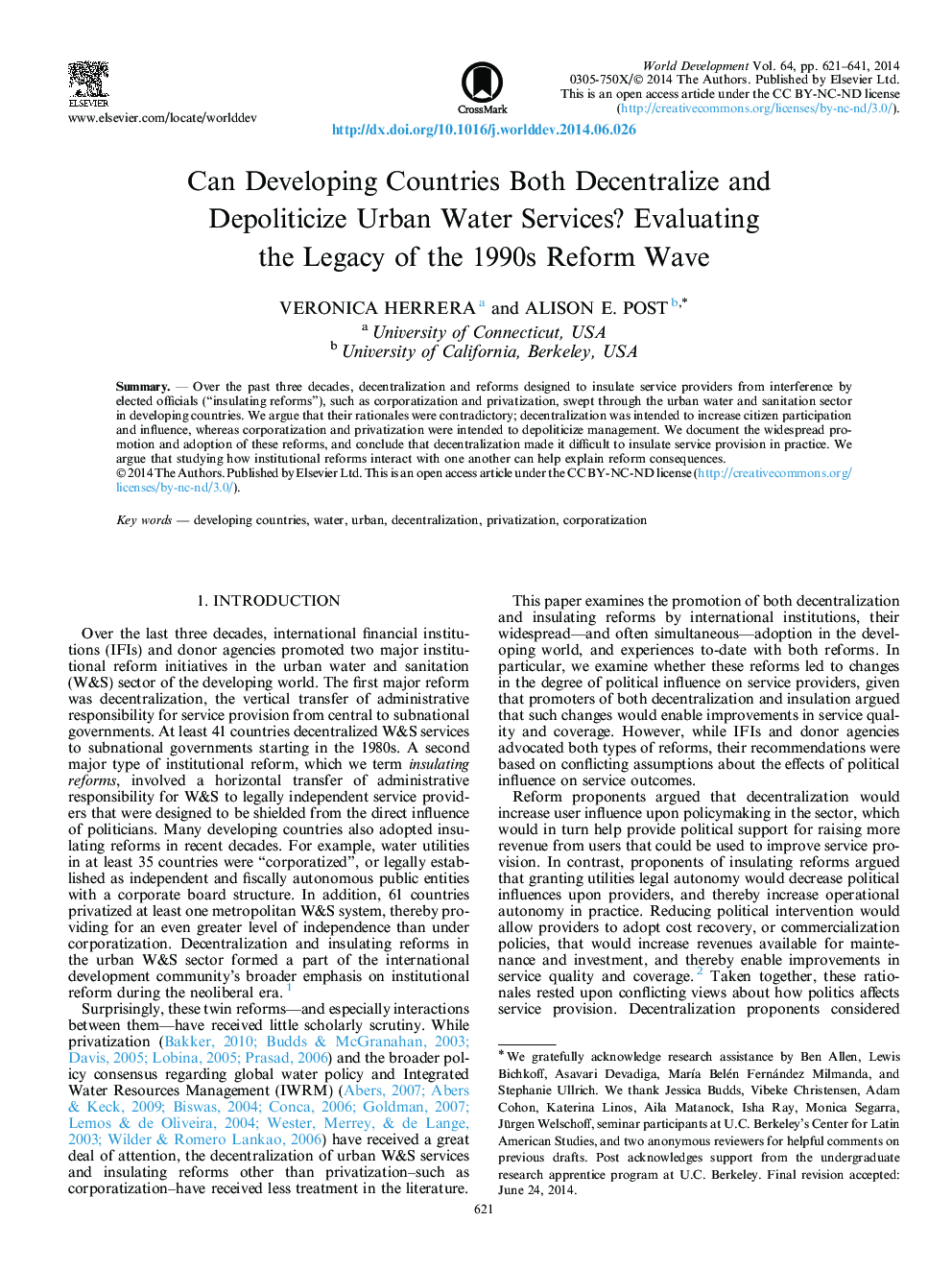| Article ID | Journal | Published Year | Pages | File Type |
|---|---|---|---|---|
| 7394987 | World Development | 2014 | 21 Pages |
Abstract
Over the past three decades, decentralization and reforms designed to insulate service providers from interference by elected officials (“insulating reforms”), such as corporatization and privatization, swept through the urban water and sanitation sector in developing countries. We argue that their rationales were contradictory; decentralization was intended to increase citizen participation and influence, whereas corporatization and privatization were intended to depoliticize management. We document the widespread promotion and adoption of these reforms, and conclude that decentralization made it difficult to insulate service provision in practice. We argue that studying how institutional reforms interact with one another can help explain reform consequences.
Related Topics
Social Sciences and Humanities
Economics, Econometrics and Finance
Economics and Econometrics
Authors
Veronica Herrera, Alison E. Post,
